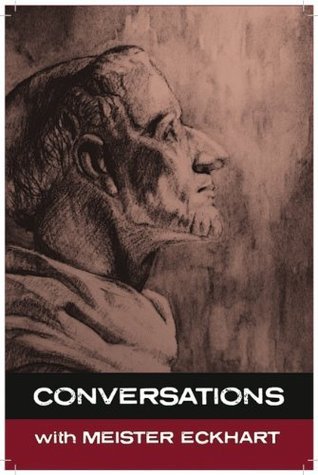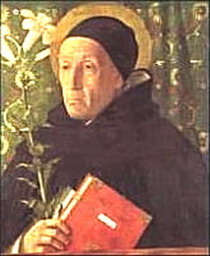
In many ways, Meister Eckhart has had to wait seven centuries to be heard. Born in 13th century Germany, much of his life was spent in a monastery; though not all. The ‘Meister’ in his name means ‘Master’, and is an academic title from the University of Paris. An admired member of the Dominican Order, he was often sent to reform ailing priories. He was known also as a spiritual counsellor; a safe haven for many who sought God in their life, but found themselves troubled by the dire state of the institutional church. And in a century of flowering female spirituality, he was a supportive figure for many Dominican nuns and women in the burgeoning lay communities which arose. He was best known, however, as a preacher – an original preacher who used his native German language to startling effect. Eckhart preached a spiritual vision which distrusted the artifice of both ritual and church dogma. Instead, he aimed at nothing less than the spiritual and psychological transformation of those given to his care. To this end, Eckhart made the disposition of the human heart the key to all things. ‘Conversations with Meister Eckhart’ is an imagined conversation with this 13th century mystic, around such themes as detachment, which he famously placed above love; spirituality, God, the soul and suffering. But while the conversation is imagined, Eckhart’s words are not; they are authentically his own. One of his controversial claims was that God cannot be described. Indeed, in one sermon, he went so far as to say ‘We must take leave of God.’ ‘The church became very hostile towards him,’ says Simon Parke, ‘accusing him of heresy; and he spent his last days on trial before the pope. They also tried to ensure he’d be forgotten when he died, and nearly succeeded. But he’s more popular now than ever.’ Eckhart’s teaching is an adventure, not a system; a call, not a creed. The depth and universality of his work means it can be contained by no established religion, but draws to itself seekers of truth from all backgrounds. ‘Here we have a teaching open to all, but possessed by none,’ says Parke. ‘And therefore free like a butterfly, in the garden of the soul. Its perhaps my most challenging and rewarding conversation.’
Author

Eckhart von Hochheim, commonly known as Meister Eckhart, was a German theologian, philosopher and mystic, born near Gotha, in Thuringia. Meister is German for "Master", referring to the academic title Magister in theologia he obtained in Paris. Coming into prominence during the decadent Avignon Papacy and a time of increased tensions between the Franciscans and Eckhart's Dominican Order of Preacher Friars, he was brought up on charges later in life before the local Franciscan-led Inquisition. Tried as a heretic by Pope John XXII, his "Defence" is famous for his reasoned arguments to all challenged articles of his writing and his refutation of heretical intent. He purportedly died before his verdict was received, although no record of his death or burial site has ever been discovered. Meister Eckhart is sometimes (erroneously) referred to as "Johannes Eckhart", although Eckhart was his given name and von Hochheim was his surname. "Perhaps no mystic in the history of Christianity has been more influential and more controversial than the Dominican Meister Eckart. Few, if any, mystics have been as challenging to modern day readers and as resistant to agreed-upon interpretation." —Bernard McGinn, The Mystical Thought of Meister Eckhart